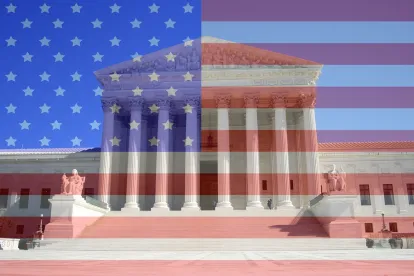The Supreme Court just made it easier for the government to prove insider trading charges. In Salman v. United States, which involved a federal criminal prosecution, the Court unanimously held that the government does not need to show that tippers received concrete benefits for their tips if the inside information was passed to a relative or friend in order to convict a tippee.
The Salman decision partially overturns the 2014 Newman case from the Second Circuit which held that the government must prove that tipping insiders received a “significant, potentially pecuniary benefit in exchange for disclosing tips” in order to convict the tippee traders who acted upon the inside information. The Supreme Court’s Salman decision removes this hurdle and opens the door to more tipper and tippee convictions and SEC actions in the future.
In Salman, Mr. Salman’s brother-in-law provided corporate information on deals and accounts to his biological brother, who in turn relayed the information to Salman. While the brother-in-law received no tangible or pecuniary benefit, he admitted that he passed on the insider information knowing that it would ultimately be traded. Salman traded on these tips and ultimately made over $1.5 million in profits. Salman argued that Newman (which the Court last Fall refused to review) precluded his conviction because the original tipper, his brother-in-law, did not receive a pecuniary or similarly valuable benefit.
The Supreme Court held that Newman’s holding on tipper/tippee liability was inconsistent with its precedent – specifically Dirks v. SEC. 463 U.S. 646 (1983). Dirks held that a tippee’s liability for trading on inside information “hinges on whether the tipper breached a fiduciary duty by disclosing the information.” Such a breach occurs when the tipper discloses inside information for a personal benefit. This personal benefit can be inferred where the tipper “receives something of value for the tip or ‘makes a gift of confidential information to a trading relative or friend.’” The issues in Salman, the Court stated, involve “precisely the gift of confidential information to a trading relative that Dirks envisioned and are therefore easily resolved by Dirks’s “simple and clear guiding principle.” Ultimately, the Court found that there was no difference in the situation at hand in Salman and one in which the tipper personally trades on the inside information and then gives the proceeds as a gift. As such, no pecuniary or tangible benefit was necessary.
While the Court’s decision overturned the portion of Newman regarding what suffices as a personal benefit, it left untouched Newman’s holding that a tippee must know that the insider received a personal benefit in order to be held liable for trading on insider information. Further, the Salman decision left open several issues that will need to ultimately be addressed in future cases. For instance, the Court did not define or articulate who qualifies as a “friend” or how close a personal relationship must be in order to satisfy the personal benefit requirement. The decision also did not discuss the kind of proof that the government will need in order to show the nature of a relationship between a tipping insider and a trading tippee. These unresolved matters leave insider trading law in a state of some ambiguity.
Despite the issues left open by Salman, we expect that the Court’s decision will embolden the SEC and Department of Justice, who both have been active in bringing insider trading cases. The Chair of the SEC was quick to praise the Salman decision, stating that the decision “affirms our ability to continue to aggressively pursue illegal insider trading and bring wrongdoers to justice.”



 />i
/>i
